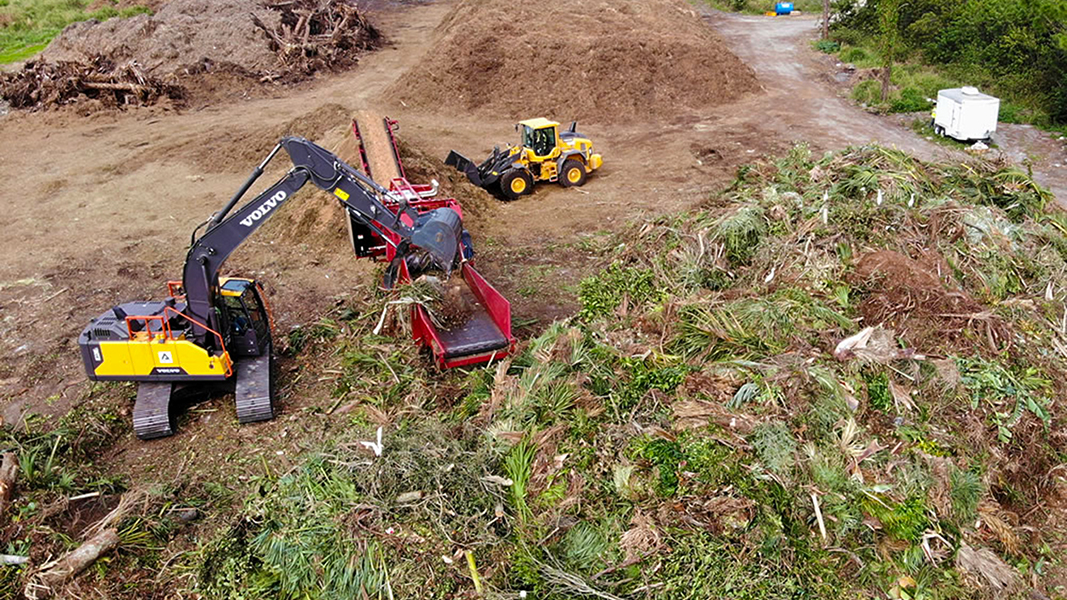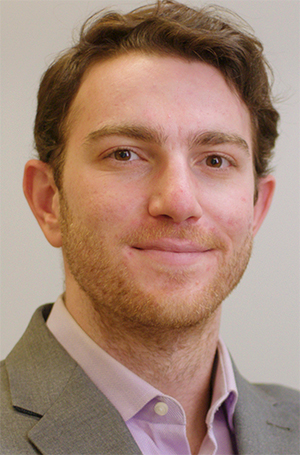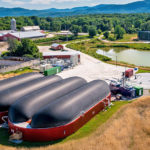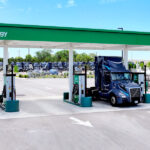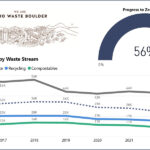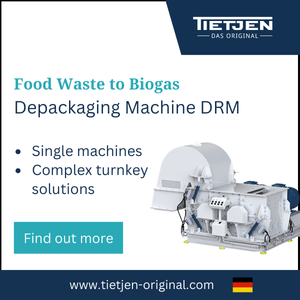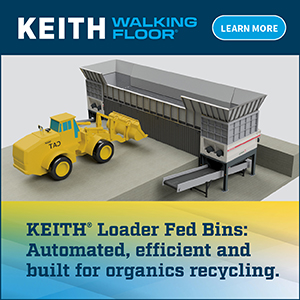Top: Aerial view of Indian River County’s yard trimmings composting site. Photo courtesy of Atlas Organics, Inc.
Nora Goldstein
Over the past few years, BioCycle has witnessed significant amounts of investment capital flowing into the organics recycling sector. It was evident by the attendance of finance and investment firms at BioCycle Conferences, and then by project developers, especially those in the anaerobic digestion/renewable natural gas (RNG) sector of the industry, announcing the raising of millions of dollars of investment capital in their companies.
Because of the focus on AD, we were pleasantly caught by surprise in late 2019, when Boston-based Spring Lane Capital committed $21.4 million to Atlas Organics, Inc., a composting facility developer based in the southeastern U.S., for equity in future solid waste diversion projects and corporate support. Spring Lane Capital (SLC) is a private equity firm focused on “catalytic project capital investments for smaller scale distributed solutions in the energy, water, food and waste industries.” In early 2020, BioCycle interviewed Nikhil Garg, Co-Founder and General Partner at SLC about the Atlas Organics investment. “We identified a gap in the financing market where early stage companies have established commercially proven solutions using venture funding, and hit the point where they need to raise project capital to fund infrastructure and equipment,” he told BioCycle. “This isn’t a stage that traditional venture investors are well-suited to fund, as the asset-intensive needs aren’t a good fit for their mandate.” SLC provides catalytic investments in the $10 million to $25 million range.
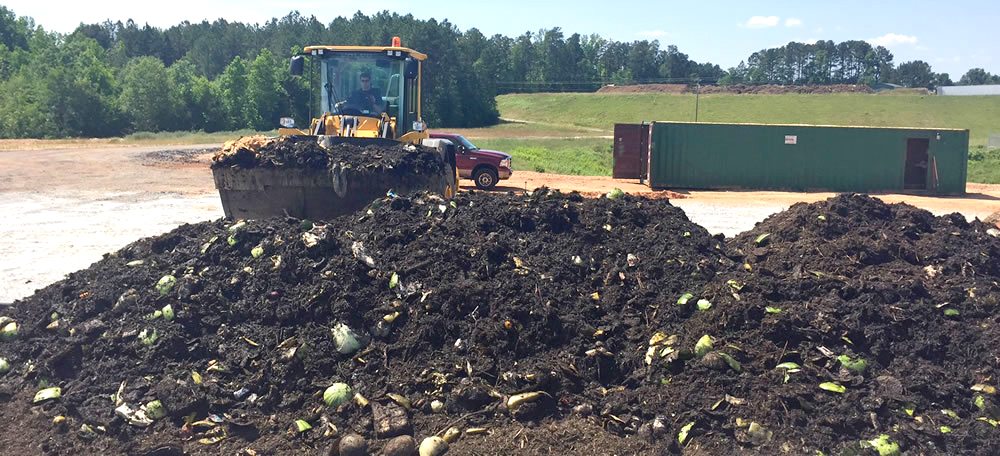
Food waste and yard trimmings are composted at Greenville County’s Twin Chimneys facility, Atlas’s first composting operation. Photo courtesy of Atlas Organics, Inc.
Two years later, on January 12, 2022, Atlas Organics announced it was expanding operations nationwide in partnership with Generate Capital, an owner and operator of organic waste processing solutions in North America. The transaction is providing over $200 million in financing for expansion of Atlas composting facilities in the coming years; Generate has taken ownership of Atlas’ assets, including existing municipal contracts, at the eight currently operated composting facilities. “We see a tremendous opportunity to leverage the experience and capabilities of the Atlas team to build a significant platform for composting infrastructure development,” noted Bill Caesar, president of Generate’s waste-to-value operations, when the deal was announced.
As part of the transaction, Spring Lane Capital sold its investment to Generate Capital. “An investment like ours in Atlas Organics provides the stepping stones and know-how to help companies scale,” explains Kamal Daghistani, Senior Associate at SLC. “If we do that well, mainstream banks and infrastructure lenders and investors will want to get involved. In Atlas’ case, it already had a conversation with Generate and was told the company was too small at that point. The role of SLC was to get them to that place where they were ripe for an acquisition.”
Overall, Daghistani views the composting and organics recycling sector as fragmented, which makes it difficult for investors to see the potential for growth from their investments as compared to other opportunities. “Composting by nature is meant to be local and regional, so there is sort of a conflict by the very nature of the sector,” he says. “That’s where the opportunities are for companies like SLC to serve in the role of a ‘validator’ of corporate teams that have the capacity to utilize catalytic capital to get their companies to scale.”
Financial Engineering
One metric of the maturity of an industry overtime, in terms of its readiness for significant investment dollars, is the ability to stack different forms of capital. “We call it ‘financial engineering,’” explains Daghistani. “When is the right time to seek out which form of capital, e.g., to compete for a government grant versus seeking debt financing versus going to the markets for equity? How do those forms of capital interplay over a company’s lifetime? Non-dilutive financing, such as a grant, is always great because the business gets to retain equity and control over the company. The downside is that it is a long, arduous process until you see the check in the mail. But it is crucial when small businesses bootstrap on their own and develop their first facility. You then gain validation in order to consider going to a private equity provider. At that point, the question is, are you interested in rapid growth over equity retention? What are your ambitions? With outside capital, you are on the clock of investors and meeting their growth expectations.”
Market factors are integral to calculating the risk/return for investments as well. “With composting, investors can find confidence when feedstock suppliers sign long-term agreements to direct their organic waste streams to the company’s facility or facilities,” he adds. “On the other hand, if they are selling compost and blended soil products to noncontracted end markets, that reduces the level of confidence in the investment. In Atlas Organics’ case, the company had gained a lot of experience and built trust with its end users, providing investors with a level of comfort.”
Daghistani notes that increasingly, investors such as SLC are focusing on factors beyond the economics, such as social and environmental benefits. With an investment in an anaerobic digester (AD) developer, it is “crucially important” to turn liabilities into assets for the community where projects are being installed. A case in point is spreading of digestate that can negatively impact public health and the environment. “We are doing our due diligence in vetting best-in-class technologies to replace land application where it can be a liability with creation of nutrient-rich, valorized soil products,” he says. “SLC wants to be investing in companies and technologies that offer a complete solution. We are looking at the technology and the social and environmental impact of that technology, e.g., to clean up a lot of farm operations, provide farmers with an additional revenue source and potentially provide revenue streams to connect neighbors into offtakes. It is a huge play on delivering multiple benefits.”
ANDION Global
When BioCycle interviewed Daghistani in late January, we asked about Spring Lane Capital’s latest investments in the organics recycling sector. He mentioned that SLC had made an investment last fall in an AD company that is converting animal waste into RNG. Then, on February 25, a press release came in from ANDION Global, Inc., announcing it had received $20 million in “Tranche 1” financing and a concurrent $250 million in project development equity financing to be allocated to direct investments in Andion’s pipeline of projects in North America and Europe. The $20 million financing is from three investment partners: a private fund managed by Spring Lane Capital, Equitix Infrastructure Investments Limited (“Equitix”), and Business Development Bank of Canada.

Anaerobic digestion facility in Europe using Andion’s propriety technologies. Photo courtesy of Andion Global, Inc.
The $250 million project “equity facility” will be allocated concurrently by Spring Lane Capital and Equitix, and used to finance the development, construction and acquisition of projects in Andion’s North American and European markets. The “facility” is project equity reserved for Andion to be accessed as projects reach construction-ready and qualify under a predetermined set of criteria agreed upon between the investors and Andion.
“Essentially, the $20 million is catalytic capital invested in Andion to expand our team and accelerate development efforts,” explains Phillip Abrary, Andion’s CEO. “The $250 million is what our investment partners have made available for direct equity investments either in new projects, or to fund acquisitions. SLC and Equitix will take equity positions in those investments; Andion will also invest alongside SLC and Equitix. Andion’s capacity to make project level investments is limited, which is why we brought in these strong financial partners to aggressively expand our project pipeline.”
Andion’s origins are in Italy, where the company has been a technology provider of AD equipment for many years both to the wastewater treatment sector and for food waste digestion. It has successfully delivered more than 50 complete AD facilities as well as over 130 complex wastewater treatment plants. Four years ago, Andion restructured to create a more international, global presence. The company’s headquarters were relocated to Vancouver, British Columbia, and it has subsidiaries in the Nordic and European marketplaces.
The transition positions Andion to be both a technology provider and a project developer, says Abrary. “As only a technology supplier we would be subject to the progress and timelines of third party developers who may encounter a variety of delays throughout the development process. As a developer/owner, we are directly in control — and we have the advantage of years of experience supporting permitting, contracting and project structuring activities. Both the $20 million investment and the $250 million in available financing allow us to rapidly propel the development, deployment and operation of our own waste-to-energy facilities. The proven proprietary technologies used in AD plants have the additional benefit of countering climate change by transforming waste into a renewable fuel.”
Targeting Food Waste
Andion cut its teeth on anaerobic digestion of food waste when a composting plant in Italy decided to install an AD system as a means to expand its capacity to receive incoming food waste streams and to take advantage of additional revenue resulting from the generation of renewable energy. The company’s equipment includes the Tornado pretreatment system, a food waste depackager that also removes the plastics and packaging, as well as inert materials, to create a pure organic slurry, which is then fed into the digester to generate biogas.
“Use of AD solutions in Europe to manage food waste is advanced in terms of the sector’s maturity and market sophistication,” notes Abrary. “That is in contrast to North America where there is demand to recycle food waste and inadequate infrastructure. Generators, including municipalities, are paying significant fees for disposal. At the same time, there are incentives for reducing carbon footprints and generating renewable energy, such as RNG. Much of the focus, especially in the U.S., has been on installing AD systems on farms to produce RNG from manure, which has very low carbon intensity scores and thus the highest value in the renewable fuels market. With food waste facilities, you also get significant income from tipping fees and processing — and generate RNG. Andion’s expertise in managing the complexity of that type of waste stream is therefore a good match in the North American marketplace.”
That match was a significant factor in attracting financing from Spring Lane Capital. “Renewable natural gas solutions are increasingly playing a key role in helping corporations and municipalities meet their carbon targets,” explains Nathaniel Lowbeer-Lewis, Vice President, Canada for SLC. “We are excited to partner with Andion as this long-term trend presents a tremendous opportunity for institutional investors in the global sustainable finance markets. We have witnessed first-hand more and more interest from investors in waste diversion solutions and are very impressed with Andion’s pedigree in the RNG space. With over 20 years of experience, their team brings deep technical competency that is unmatched in the sector, and we expect our collaboration to serve as a platform to foster additional organics and RNG investment opportunities.”
Andion’s first North American project is in development and the company is keeping it under wraps at this time. It will be located in British Columbia, and process commercial and household food waste streams to generate RNG. “Going forward, we will be expanding our project pipelines in North America and Europe and creating opportunities for Andion and our investment partners,” says Abrary.


